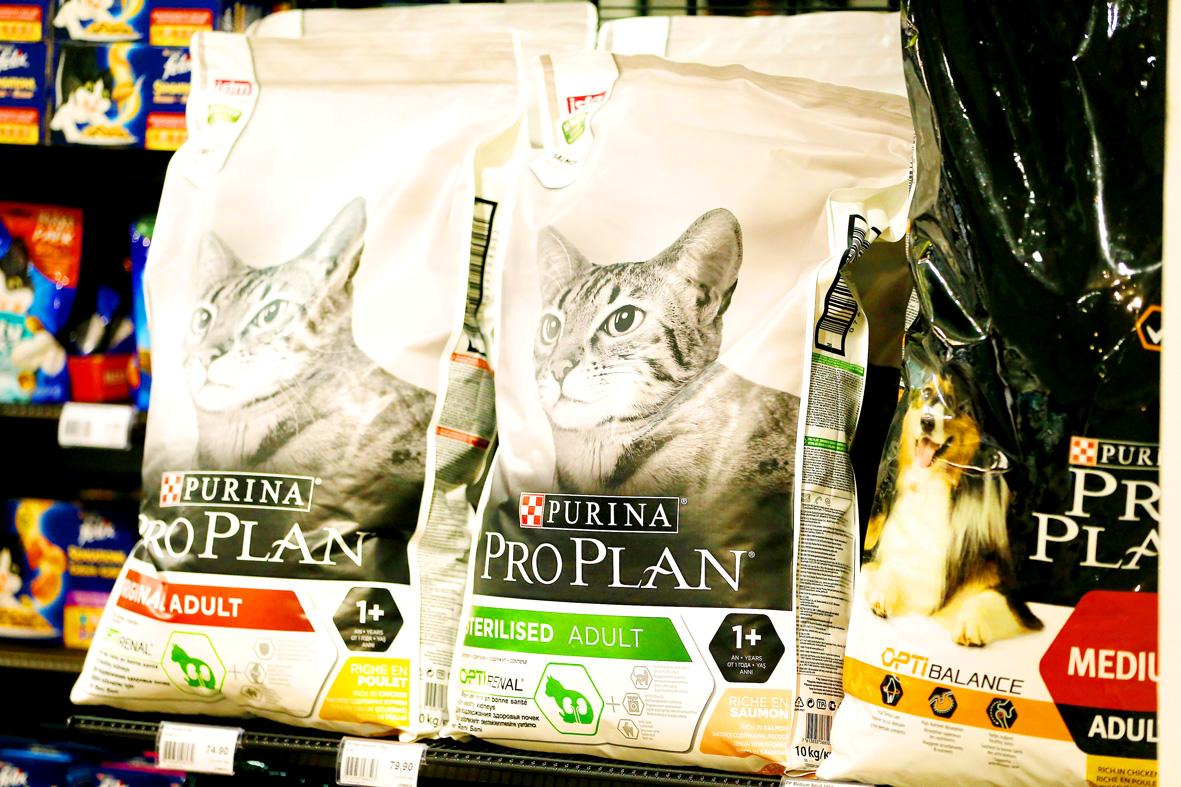Swiss food giant Nestle yesterday reported its best quarterly sales growth in nearly five years, as consumers stockpiled everything from Purina pet food to Nescafe coffee and frozen meals to prepare for COVID-19 lockdowns.
Sales in North America and Europe were particularly strong last month, helping to drive an overall rise of 4.3 percent in the first three months of the year, the fastest quarterly growth in nearly five years and above analyst expectations for a 3 percent increase.
In North America, Purina Pet care sales rose by a double-digit percentage, while Nescafe and Coffee Mate drinks had high single-digit increases. Consumers also grabbed more DiGiorno and Hot Pockets frozen meals, giving some respite to a business that has struggled recently.

Photo: Reuters
In Europe, Middle East and North Africa, most categories of Nestle product won market share, the company said.
Maggi noodles and plant-based products from its Garden Gourmet brand did well, though water sales declined as fewer people ate out.
“A majority of markets, particularly in North America and Europe, saw significantly increased growth in March, partially supported by consumer stockpiling,” Nestle said in a statement.
Analysts at Jefferies said Nestle was outperforming its rivals, trading at 24.8 times forward earnings compared with 20.9 times for Unilever and 14.5 times for Danone .
Unilever on Thursday said its underlying sales remained flat in the first quarter. Unilever has a bigger exposure to emerging markets where the coronavirus hit earlier, triggering stringent lockdowns that curbed consumer spending.
For Nestle, underlying sales in Asia fell 4.6 percent, as customers in China stayed away from restaurants and shops for much of the quarter, although online sales there jumped. The Swiss company also said prices had dropped in both North America and Europe.
Nestle said it was launching a 500 million Swiss franc (US$511.3 million) program to help the cafes and restaurants it supplies by extending payment terms and suspending rental fees for coffee machines. It also agreed to maintain orders from its dairy suppliers who have faced “significant demand disruptions.”
Nestle also announced that it was exploring strategic options, including a sale of its struggling Yinlu peanut milk and canned rice porridge businesses in China. The businesses generated sales of SF700 million last year.
The company also kept its outlook for the year, which targets continued improvement in organic sales growth, which strips out the impact of acquisitions or divestments, and a higher underlying operating profit margin.
“Despite the ongoing challenges in the supply chain and ... fast-changing consumer needs, the company was able to deliver strong growth,” Vontobel analyst Jean-Philippe Bertschy said, adding that the confirmation of its goals for this year showed Nestle’s ability to navigate the crisis.

WEAKER ACTIVITY: The sharpest deterioration was seen in the electronics and optical components sector, with the production index falling 13.2 points to 44.5 Taiwan’s manufacturing sector last month contracted for a second consecutive month, with the purchasing managers’ index (PMI) slipping to 48, reflecting ongoing caution over trade uncertainties, the Chung-Hua Institution for Economic Research (CIER, 中華經濟研究院) said yesterday. The decline reflects growing caution among companies amid uncertainty surrounding US tariffs, semiconductor duties and automotive import levies, and it is also likely linked to fading front-loading activity, CIER president Lien Hsien-ming (連賢明) said. “Some clients have started shifting orders to Southeast Asian countries where tariff regimes are already clear,” Lien told a news conference. Firms across the supply chain are also lowering stock levels to mitigate

IN THE AIR: While most companies said they were committed to North American operations, some added that production and costs would depend on the outcome of a US trade probe Leading local contract electronics makers Wistron Corp (緯創), Quanta Computer Inc (廣達), Inventec Corp (英業達) and Compal Electronics Inc (仁寶) are to maintain their North American expansion plans, despite Washington’s 20 percent tariff on Taiwanese goods. Wistron said it has long maintained a presence in the US, while distributing production across Taiwan, North America, Southeast Asia and Europe. The company is in talks with customers to align capacity with their site preferences, a company official told the Taipei Times by telephone on Friday. The company is still in talks with clients over who would bear the tariff costs, with the outcome pending further

Six Taiwanese companies, including contract chipmaker Taiwan Semiconductor Manufacturing Co (TSMC, 台積電), made the 2025 Fortune Global 500 list of the world’s largest firms by revenue. In a report published by New York-based Fortune magazine on Tuesday, Hon Hai Precision Industry Co (鴻海精密), also known as Foxconn Technology Group (富士康科技集團), ranked highest among Taiwanese firms, placing 28th with revenue of US$213.69 billion. Up 60 spots from last year, TSMC rose to No. 126 with US$90.16 billion in revenue, followed by Quanta Computer Inc (廣達) at 348th, Pegatron Corp (和碩) at 461st, CPC Corp, Taiwan (台灣中油) at 494th and Wistron Corp (緯創) at

NEGOTIATIONS: Semiconductors play an outsized role in Taiwan’s industrial and economic development and are a major driver of the Taiwan-US trade imbalance With US President Donald Trump threatening to impose tariffs on semiconductors, Taiwan is expected to face a significant challenge, as information and communications technology (ICT) products account for more than 70 percent of its exports to the US, Chung-Hua Institution for Economic Research (CIER, 中華經濟研究院) president Lien Hsien-ming (連賢明) said on Friday. Compared with other countries, semiconductors play a disproportionately large role in Taiwan’s industrial and economic development, Lien said. As the sixth-largest contributor to the US trade deficit, Taiwan recorded a US$73.9 billion trade surplus with the US last year — up from US$47.8 billion in 2023 — driven by strong